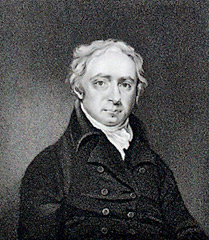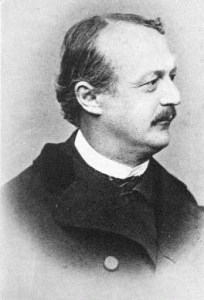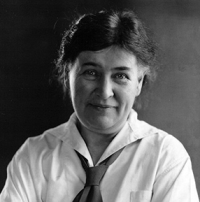Fleurs du Mal Magazine


Or see the index

Jenny kiss’d Me
Jenny kiss’d me when we met,
Jumping from the chair she sat in;
Time, you thief, who love to get
Sweets into your list, put that in!
Say I’m weary, say I’m sad,
Say that health and wealth have miss’d me,
Say I’m growing old, but add,
Jenny kiss’d me.
James Henry Leigh Hunt
(1784 – 1859)
Jenny kiss’d Me
• fleursdumal.nl magazine
More in: # Classic Poetry Archive, Archive K-L, Archive K-L, Hunt, Leigh

Seulette suis…
Seulette suis, et seulette veux être,
Seulette m’a mon doux ami laissée.
Seulette suis, sans compagnon ni maître,
Seulette suis, dolente et courroucée,
Seulette suis, en langueur malaisée,
Seulette suis, plus que nulle égarée,
Seulette suis, sans ami demeurée.
Seulette suis, à huis ou à fenêtre,
Seulette suis, en un anglet muciée,
Seulette suis, pour moi de pleurs repaître,
Seulette suis, dolente ou apaisée,
Seulette suis, rien qui tant messiée,
Seulette suis, en ma chambre enserrée,
Seulette suis, sans ami demeurée.
Seulette suis, partout et en tout aître,
Seulette suis, que je marche ou je siée,
Seulette suis, plus qu’autre rien terrestre,
Seulette suis, de chacun délaissée,
Seulette suis, durement abaissée,
Seulette suis, souvent toute éplorée,
Seulette suis, sans ami demeurée.
Princes, or est ma douleur commencée :
Seulette suis, de tout deuil menacée,
Seulette suis, plus teinte que morée,
Seulette suis, sans ami demeurée.
Christine de Pisan
(1364/1365 – 1430)
Seulette suis…
Poéme
• fleursdumal.nl magazine
More in: # Classic Poetry Archive, Archive O-P, Archive O-P, Pisan, Christine de, The Ideal Woman

Song of the American Indian
Stranger, stay, nor wish to climb
The heights of yonder hills sublime;
For there strange shapes and spirits dwell,
That oft the murmuring thunders swell,
Of power from the impending steep
To hurl thee headlong to the deep;
But secure with us abide,
By the winding river’s side;
Our gladsome toil, our pleasures share,
And think not of a world of care.
The lonely cayman, where he feeds
Among the green high-bending reeds,
Shall yield thee pastime; thy keen dart
Through his bright scales shall pierce his heart.
Home returning from our toils,
Thou shalt bear the tiger’s spoils;
And we will sing our loudest strain
O’er the forest-tyrant slain!
Sometimes thou shalt pause to hear
The beauteous cardinal sing clear;
Where hoary oaks, by time decayed,
Nod in the deep wood’s pathless glade;
And the sun, with bursting ray,
Quivers on the branches gray.
By the river’s craggy banks,
O’erhung with stately cypress-ranks,
Where the bush-bee hums his song,
Thy trim canoe shall glance along.
To-night at least, in this retreat,
Stranger! rest thy wandering feet;
To-morrow, with unerring bow,
To the deep thickets fearless we will go.
William Lisle Bowles
(1762 – 1850)
Song of the American Indian
• fleursdumal.nl magazine
More in: # Classic Poetry Archive, #Archive Native American Library, Archive A-B, Archive A-B, Cowboys and Indians, Racism, Western Fiction

The Sleeping Beauty
Sleep on, and dream of Heaven awhile—
Though shut so close thy laughing eyes,
Thy rosy lips still wear a smile
And move, and breathe delicious sighs!
Ah, now soft blushes tinge her cheeks
And mantle o’er her neck of snow:
Ah, now she murmurs, now she speaks
What most I wish—and fear to know!
She starts, she trembles, and she weeps!
Her fair hands folded on her breast:
—And now, how like a saint she sleeps!
A seraph in the realms of rest!
Sleep on secure! Above control
Thy thoughts belong to Heaven and thee:
And may the secret of thy soul
Remain within its sanctuary!
Samuel Rogers
(1763 – 1855)
The Sleeping Beauty
• fleursdumal.nl magazine
More in: # Classic Poetry Archive, Archive Q-R, Archive Q-R, Grimm, Andersen e.o.: Fables, Fairy Tales & Stories

Written at Midnight
While thro’ the broken pane the tempest sighs,
And my step falters on the faithless floor,
Shades of departed joys around me rise,
With many a face that smiles on me no more;
With many a voice that thrills of transport gave,
Now silent as the grass that tufts their grave!
Samuel Rogers
(1763 – 1855)
Written at Midnight, 1786
• fleursdumal.nl magazine
More in: # Classic Poetry Archive, Archive Q-R, Archive Q-R

Cupid Drowned
T’other day as I was twining
Roses, for a crown to dine in,
What, of all things, ‘mid the heap,
Should I light on, fast asleep,
But the little desperate elf,
The tiny traitor, Love, himself!
By the wings I picked him up
Like a bee, and in a cup
Of my wine I plunged and sank him,
Then what d’ye think I did?—I drank him.
Faith, I thought him dead. Not he!
There he lives with tenfold glee;
And now this moment with his wings
I feel him tickling my heart-strings.
James Henry Leigh Hunt
(1784 – 1859)
Cupid Drowned
From: Poems That Every Child Should Know
• fleursdumal.nl magazine
More in: # Classic Poetry Archive, Archive G-H, Archive G-H, Hunt, Leigh

The Dying Slave
Faint-gazing on the burning orb of day,
When Afric’s injured son expiring lay,
His forehead cold, his labouring bosom bare,
His dewy temples, and his sable hair,
His poor companions kissed, and cried aloud,
Rejoicing, whilst his head in peace he bowed:—
Now thy long, long task is done,
Swiftly, brother, wilt thou run,
Ere to-morrow’s golden beam
Glitter on thy parent stream,
Swiftly the delights to share,
The feast of joy that waits thee there.
Swiftly, brother, wilt thou ride
O’er the long and stormy tide,
Fleeter than the hurricane,
Till thou see’st those scenes again,
Where thy father’s hut was reared,
Where thy mother’s voice was heard;
Where thy infant brothers played
Beneath the fragrant citron shade;
Where through green savannahs wide
Cooling rivers silent glide,
Or the shrill cicalas sing
Ceaseless to their murmuring;
Where the dance, the festive song,
Of many a friend divided long,
Doomed through stranger lands to roam,
Shall bid thy spirit welcome home!
Fearless o’er the foaming tide
Again thy light canoe shall ride;
Fearless on the embattled plain
Thou shalt lift thy lance again;
Or, starting at the call of morn,
Wake the wild woods with thy horn;
Or, rushing down the mountain-slope,
O’ertake the nimble antelope;
Or lead the dance, ‘mid blissful bands,
On cool Andracte’s yellow sands;
Or, in the embowering orange-grove,
Tell to thy long-forsaken love
The wounds, the agony severe,
Thy patient spirit suffered here!
Fear not now the tyrant’s power,
Past is his insulting hour;
Mark no more the sullen trait
On slavery’s brow of scorn and hate;
Hear no more the long sigh borne
Murmuring on the gales of morn!
Go in peace; yet we remain
Far distant toiling on in pain;
Ere the great Sun fire the skies
To our work of woe we rise;
And see each night, without a friend,
The world’s great comforter descend!
Tell our brethren, where ye meet,
Thus we toil with weary feet;
Yet tell them that Love’s generous flame,
In joy, in wretchedness the same,
In distant worlds was ne’er forgot;
And tell them that we murmur not;
Tell them, though the pang will start,
And drain the life-blood from the heart,—
Tell them, generous shame forbids
The tear to stain our burning lids!
Tell them, in weariness and want,
For our native hills we pant,
Where soon, from shame and sorrow free,
We hope in death to follow thee!
William Lisle Bowles
(1762 – 1850)
The Dying Slave
• fleursdumal.nl magazine
More in: # Classic Poetry Archive, *Archive African American Literature, Archive A-B, Archive A-B, Black Lives Matter, Racism

Comme surpris
Comme surpris
Et entrepris
De vostre amour,
Je me rens pris
En vo pourpris,
Dame d’onnour.
Si ne mespris
Quant j’entrepris
Si haulte honnour
Comme surpris.
Mais en despris
Ne m’ait le pris
De vo valour;
Car j’ay apris
Les biens compris
En vo doulçour
Comme surpris.
Christine de Pisan
(1364/1365 – 1430)
Comme surpris
Rondeaux
• fleursdumal.nl magazine
More in: # Classic Poetry Archive, Archive O-P, Archive O-P, Pisan, Christine de, The Ideal Woman

In der Sistina
In der Sistine dämmerhohem Raum,
Das Bibelbuch in seiner nerv’gen Hand,
Sitzt Michelangelo in wachem Traum,
Umhellt von einer kleinen Ampel Brand.
Laut spricht hinein er in die Mitternacht,
Als lauscht’ ein Gast ihm gegenüber hier,
Bald wie mit einer allgewalt’gen Macht,
Bald wieder wie mit seinesgleichen schier:
»Umfaßt, umgrenzt hab ich dich, ewig Sein,
Mit meinen großen Linien fünfmal dort!
Ich hüllte dich in lichte Mäntel ein
Und gab dir Leib, wie dieses Bibelwort.
Mit wehnden Haaren stürmst du feurigwild
Von Sonnen immer neuen Sonnen zu,
Für deinen Menschen bist in meinem Bild
Entgegenschwebend und barmherzig du!
So schuf ich dich mit meiner nicht’gen Kraft:
Damit ich nicht der größre Künstler sei,
Schaff mich – ich bin ein Knecht der Leidenschaft –
Nach deinem Bilde schaff mich rein und frei!
Den ersten Menschen formtest du aus Ton,
Ich werde schon von härterm Stoffe sein,
Da, Meister, brauchst du deinen Hammer schon,
Bildhauer Gott, schlag zu! Ich bin der Stein.«
Conrad Ferdinand Meyer
(1825 – 1898)
In der Sistina
• fleursdumal.nl magazine
More in: # Classic Poetry Archive, Archive M-N, Archive M-N

To My Dear and Loving Husband
If ever two were one, then surely we.
If ever man were loved by wife, then thee;
If ever wife was happy in a man,
Compare with me, ye women, if you can.
I prize thy love more than whole mines of gold,
Or all the riches that the East doth hold.
My love is such that rivers cannot quench,
Nor ought but love from thee give recompence.
Thy love is such I can no way repay;
The heavens reward thee manifold, I pray.
Then while we live, in love let’s so persever[e],
That when we live no more, we may live ever.
Anne Bradstreet
(1612 – 1672)
To My Dear and Loving Husband
• fleursdumal.nl magazine
More in: # Classic Poetry Archive, Archive A-B, Archive A-B, Bradstreet, Anne

Belle, ce que j’ay requis
Belle, ce que j’ay requis
Or le vueilliez ottroier,
Car par tant de fois proier
Bien le doy avoir conquis.
Je l’ay ja si long temps quis,
Et pour trés bien emploier,
Belle, ce que j’ay requis.
Se de moy avez enquis,
Ne me devez pas noyer
Mon guerdon, ne mon loier;
Car par raison j’ai acquis,
Belle, ce que j’ay requis.
Christine de Pisan
(1364/1365 – 1430)
Belle, ce que j’ay requis
Rondeaux
• fleursdumal.nl magazine
More in: # Classic Poetry Archive, Archive O-P, Archive O-P, Pisan, Christine de, The Ideal Woman

I Sought the Wood in Winter
I sought the wood in summer
When every twig was green;
The rudest boughs were tender,
And buds were pink between.
Light-fingered aspens trembled
In fitful sun and shade,
And daffodils were golden
In every starry glade.
The brook sang like a robin—
My hand could check him where
The lissome maiden willows
Shook out their yellow hair.
“How frail a thing is Beauty,”
I said, “when every breath
She gives the vagrant summer
But swifter woos her death.
For this the star dust troubles,
For this have ages rolled:
To deck the wood for bridal
And slay her with the cold.”
I sought the wood in winter
When every leaf was dead;
Behind the wind-whipped branches
The winter sun set red.
The coldest star was rising
To greet that bitter air,
The oaks were writhen giants;
Nor bud nor bloom was there.
The birches, white and slender,
In deathless marble stood,
The brook, a white immortal,
Slept silent in the wood.
“How sure a thing is Beauty,”
I cried. “No bolt can slay,
No wave nor shock despoil her,
No ravishers dismay.
Her warriors are the angels
That cherish from afar,
Her warders people Heaven
And watch from every star.
The granite hills are slighter,
The sea more like to fail;
Behind the rose the planet,
The Law behind the veil.”
Willa Cather
(1873 – 1947)
I Sought the Wood in Winter
• fleursdumal.nl magazine
More in: # Classic Poetry Archive, 4SEASONS#Winter, Archive C-D, Archive C-D
Thank you for reading Fleurs du Mal - magazine for art & literature